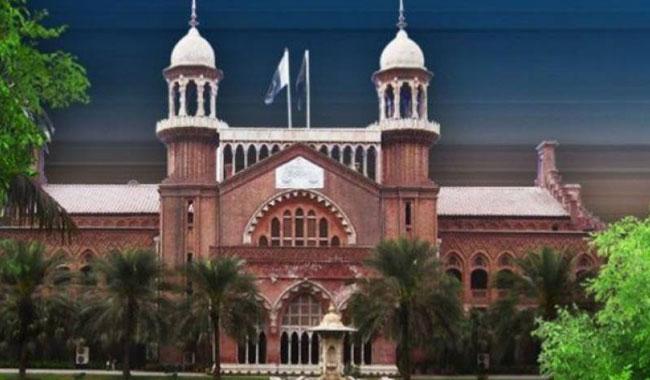LHC orders to make Model Town report public

LAHORE: The Lahore High Court (LHC) on Thursday ordered the Punjab government to make the judicial inquiry report into the Model Town massacre public and provide copies of the same to the victim families forthwith.
Justice Sayyed Mazahar Ali Akbar Naqvi ruled that access to information is a fundamental right of every citizen, guaranteed by the Constitution. The inquiry conducted and report prepared by one-man tribunal comprising Justice Baqar Ali Najfi is a public document in terms of Qanoon-e-Shahadat Order 1984, being an outcome of judicial proceedings. So, the same must be publicised.
The petitions were filed by the families of victims killed in Model Town during an “anti-encroachment operation” conducted by the police against the Pakistan Awami Tehreek (PAT) headquarters. At least 14 people were killed and 85 others injured in the police action.
The 16-page order was read out by Justice Naqvi which says: “Therefore, keeping in view the public interest, it is directed that the report be publicised forthwith so that legal heirs of the deceased, as well as injured, may be able to know about the actual wrong-doers who directly or indirectly were instrumental in the gruesome occurrence, to agitate their grievances in befitting manner in the interest of safe administration of justice.”
The court asked the Punjab home secretary to immediately provide a copy of the inquiry report to the aggrieved persons for their consumption without fail.The court had reserved its verdict a few days ago after hearing arguments on a petition, filed by legal heirs of 14 persons killed as a result of firing opened by the Punjab Police during a protest held by the Pakistan Awami Tehreek (PAT) on June 16, 2014 in Model Town. As many as 85 others had sustained firearm injuries.
The judge said, “It is painstakingly noted that whether in a civilised society, the government machinery can be utilised to curb the political opponent in such a reckless manner, resulting in the death of 14 persons including womenfolk, out of whom reportedly few were pregnant and the tally of the injured goes to eighty-five.
“Moreover, after such an outlandish occurrence, whether it would be justified that the legal heirs of the deceased would be deprived of knowing the outcome of the inquiry even after the lapse of more than three years.”
The court held that the Punjab Transparency and Right to Information Act, 2013 and Article 19-A of the Constitution were the basis of the judicial inquiry because the government made the tribunal in public interest.
The court raised questions on the transparency of the government and observed: “Hence, it is appropriate that the outcome of such an inquiry commenced on account of public interest must be brought in the notice of the public at large because in a democratic system, the will of the public is of unique importance. If such like incident, which no doubt is barbaric in nature, happens and the public is deprived of access to the information due to outcome of its proceedings before the commission, it would mean that the will of the people has been sabotaged while refusing to provide them access to information which will make the whole system catastrophic in nature, hence the same cannot be termed transparent by any stretch of imagination, particularly when the inquiry proceedings were judicial in nature under Section 5 of the West Pakistan Tribunals of Inquiry Ordinance, 1969,” the judgment elaborated.
Additionally, the court at the same time applauded the Punjab government for enacting the Punjab Transparency and Right to Information Act 2013 and criticised it for not following it.
The court says: “Moreover, while enacting the Punjab Transparency and Right to Information Act 2013, which no doubt is glaring example that the government is cognizant to safeguard the interests of the public regarding provision of information, but unfortunately the law, which was enacted by the government itself has been deviated by the same government under the clog of highhandedness and colourful authority, which otherwise seems to be tainted.”
The court dismissed the provincial law officer’s arguments that the proceedings carried out by the inquiry commission could not be termed a judicial inquiry, ruling that if Article 85 of the Qanoon-e-Shahadat Order, 1984 are read with Punjab Transparency and Right to Information Act 2013, the inquiry report being a public document, it has to be given access to the general public.
Explaining the role of judiciary, the court said: “Inception of institution of judiciary is advance administration of justice and it relates to the confidence reposed by the public where even ordinary citizen could assume that if any tragic incident takes place by an person including a government functionary, whosoever he is, he might agitate his grievance before the court of law and if this aspect is under cloud due to one reason or the other and is being hit by the dictum, ‘Justice delayed justice denied’, then in the prevailing circumstances in the country, it might lower the image of the judiciary in the eyes of the public, which should have touched the skies to ensure the public at large that courts are safeguarding their rights being watchdogs.”
The Punjab government’s main objection on the petition is that a single bench lacked the jurisdiction to adjudicate upon the instant petition, since a full bench had already seized of similar petitions, seeking release of Model Town inquiry report. However, the court turned down the same ruling that none of the petitions pending before the full bench were filed by legal heirs of the deceased or injured of the incident and no way they could be termed aggrieved persons.
The Punjab government has announced that the order of Justice Mazahar Ali Akbar Naqvi will be challenged in the court. The government said the issue was already pending before a full bench and the single bench could not pass an order on it.
Comments
Post a Comment